Hydrogen Vehicle Systems (HVS) is inviting fleet operators to register expressions of interest in trialling its hydrogen-electric heavy goods vehicle (HGV) prior to purchasing.
Supported trials are set to start in Q4 2025 once the pre-production prototyping phase is completed and the HGVs are ready to enter volume production in the UK.
Fleet operators will be offered extensive trial periods to test the hydrogen-electric HGV tractor unit, putting it through its paces and evaluating how the zero-emission vehicle will perform within their fleets.
Jawad Khursheed, CEO of HVS, explained: “In response to the huge levels of interest we have received from fleet operators we are inviting them to register expressions of interest in trialling our Hydrogen Goods Vehicle on the HVS website.
“We understand the challenges of introducing disruptive technology such as zero-emission trucks to the logistics sector, so we will be offering extensive trials to fleet operators so they can thoroughly evaluate the technology and understand how it will perform within their fleets before they purchase our vehicles, which will help them achieve their environmental targets.
“Hydrogen is the perfect fuel for the haulage industry, offering long range and quick refuelling thanks to stations being easily integrated into existing key transport networks, and we’re keen to help prospective customers learn all about this exciting technology.”
HVS revealed its 40-tonne HGV technology demonstrator complete with its hydrogen-electric powertrain in April, at the Commercial Vehicle Show.
Founded in 2017, in Glasgow, HVS focuses on the ground-up design and development of zero-emission hydrogen-powered commercial vehicles.
HVS’ tractor units will be built on an all-new chassis, designed in-house around the hydrogen powertrain, which consists of pressurised hydrogen cylinders, twin fuel cells, a high-power energy storage system and electrified rear axle.
HVS’ vehicle powertrain employs a fuel cell system and energy storage system to deploy electricity to an electric motor to transmit power to the wheels. It uses the KERS (Kinetic Energy Recovery System) to recapture energy under braking and while the truck is slowing down.
HVS says that the fuel cell permits longer range, higher load-carrying capacity, and faster refuelling than would be possible using battery-electric technology alone. Typical refuelling time is comparable to diesel, around 20 minutes to replenish the high-pressure hydrogen tanks. It is in the long-distance HGV segment that hydrogen fuel cells offer the most advantages.
Depending on the journey – the route travelled, road conditions and driving style – HVS’ HGV has the capacity to travel up to 370 miles (600km).

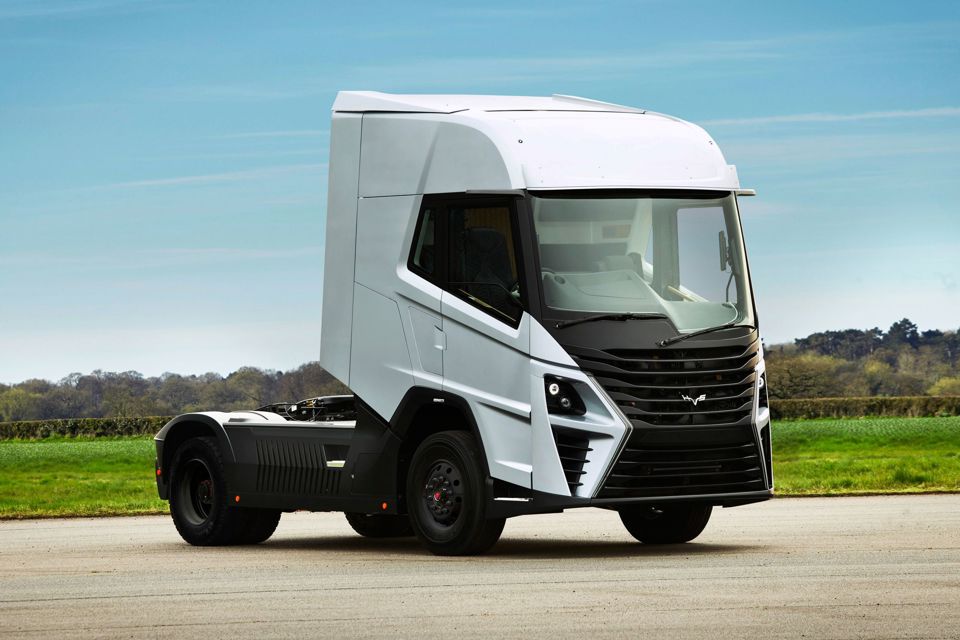




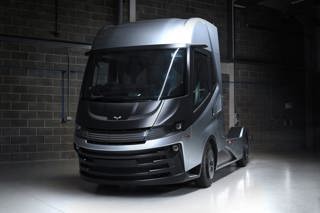
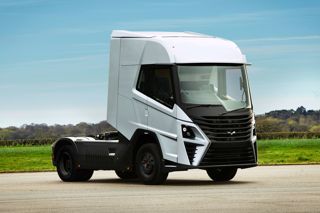

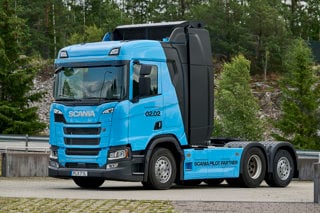
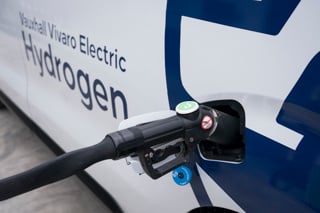












Login to comment
Comments
No comments have been made yet.